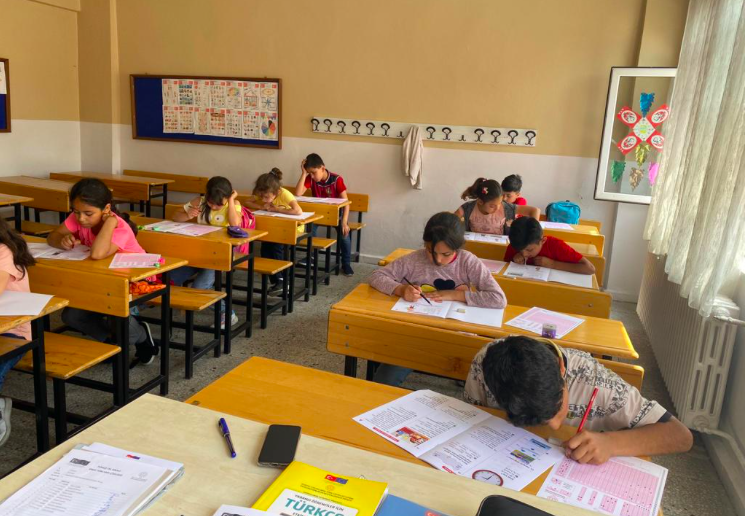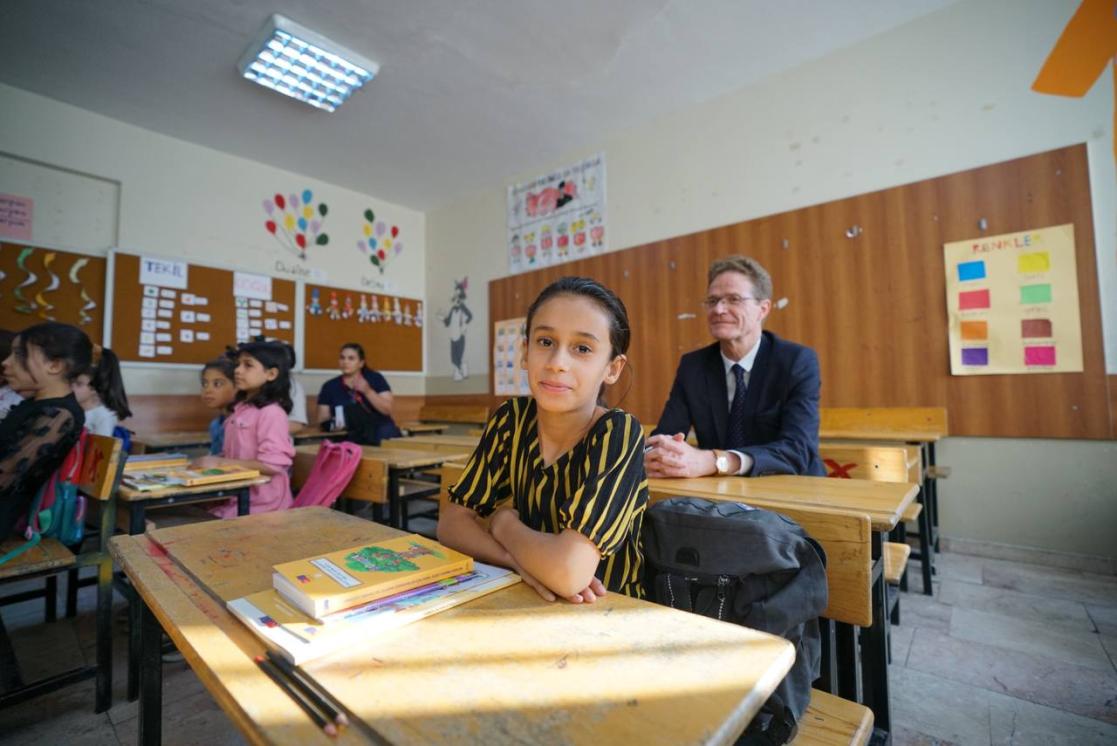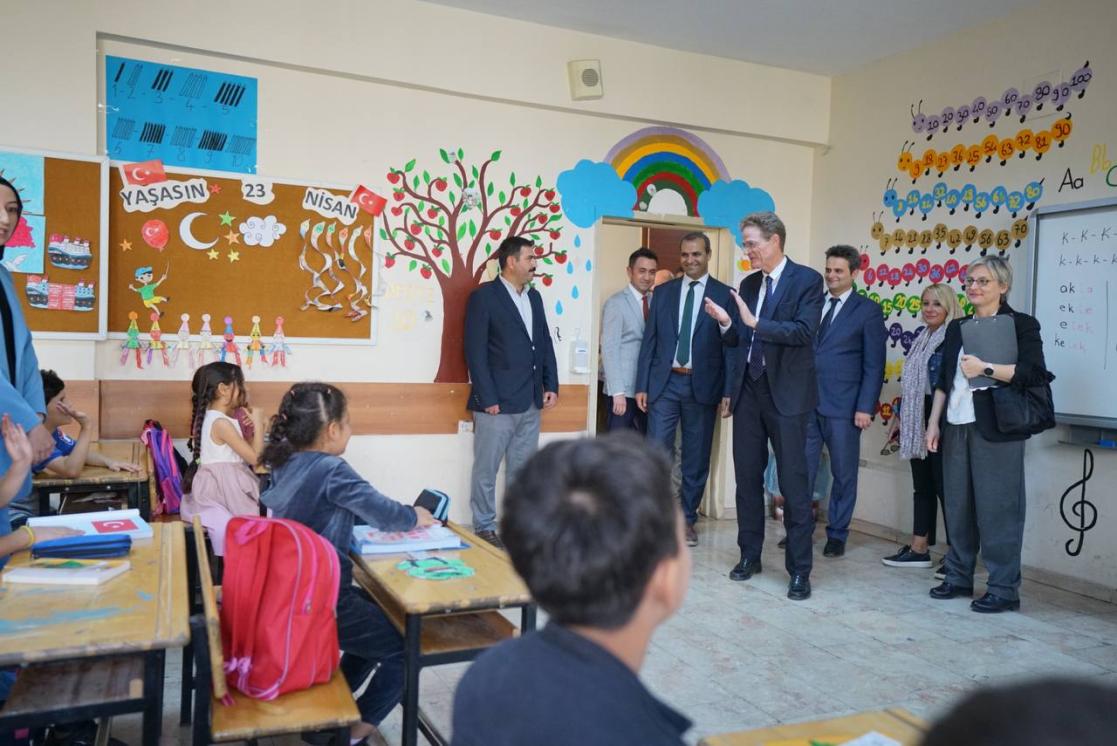“I love my school”: how inclusive education in Türkiye helps integration

They feel more comfortable when their teachers greet us with a smile, and the timidity gives place to curiosity.
Here is the Yavuz Selim Primary School, a school that receives support from the EU-funded Project for Supporting Inclusive Education for Kids in the Turkish Education System (PIKTES +) in Şanlıurfa. The third-grade students, mostly aged eight, learn the Turkish language while focusing on understanding, reading and writing.
Proud of their school and teachers
"I love my school. I have a good time here," says Yusuf. He moved to Şanlıurfa from Hatay after the February earthquakes. He already speaks Turkish well, having gone to another school supported by the PIKTES Programme in Hatay before.
Muhammed says that he likes his school, too. As he is very excited, he prefers smiling to speaking, which is so cute that everybody in the class watches him smiling.
Şam, another student, looks self-confident. She wants to continue her education to become a teacher when she grows up because she loves her teacher, her role model.

Murat Baykara
Students learn Turkish in adaptation classes
Helping students learn Turkish
The PIKTES Turkish language teachers love their students, too. They care about their students’ problems and try to contribute to solving them. Yasemin Aykal, the teacher of an adaptation class, points out that “PIKTES is a useful project for the integration of refugee students. They usually have problems understanding skills in the Turkish language, and we try to develop this skill with games and some fun elements in teaching.” Students often have difficulty understanding what they read and hear.
Gülsüm İlhan, the teacher of another adaptation class, says she spends much of extra time with her students: “I teach them Turkish and also learn Arabic from them.”
The project also provides educational materials to the PIKTES schools.

Murat Baykara
Ambassador Nikolaus Meyer-Landrut visited the Şanlıurfa Yavuz Selim Primary School in October
Helping integration and raising education quality
According to Mahmut Çıtırık, the school director, “Here there are 1,771 students, of which 386 are refugees, and the PIKTES Project has raised the educational quality in the school.”
The Head of the European Union Delegation to Türkiye, Ambassador Nikolaus Meyer-Landrut, who visited the Yavuz Selim Primary School in October, says: “PIKTES is one of the most important forms of support to the refugees. The EU funds for this education project includes support to many schools have reached €1 billion. I’m very pleased to see that the project helps the integration of refugees and contributes to raising quality of education in Türkiye.”
The Ministry of National Education implements PIKTES in 29 provinces, where almost 820,000 refugee children have enrolled in the formal education system, including preschool, in the current school year.





